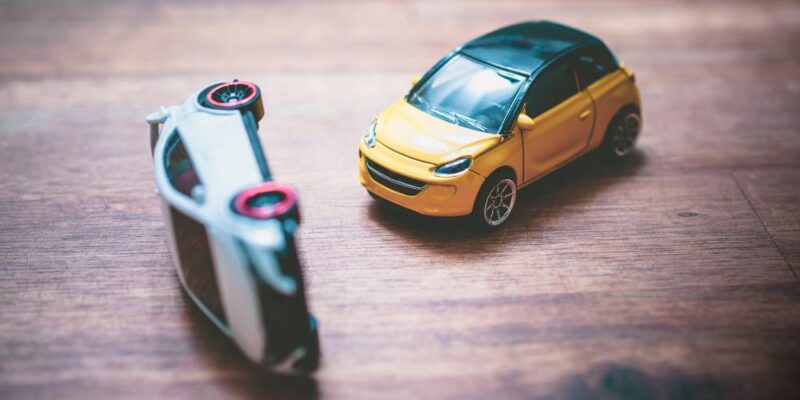Rollover accidents, though less common than other types of vehicle crashes, can be some of the most devastating and life-altering incidents on the road. These accidents occur when a vehicle tips over onto its side or roof during a collision, sometimes even completing a full rotation before coming to a stop. In this blog post, we will delve into the causes of rollover accidents, common injuries sustained by victims, and what accident victims should do if they are ever involved in such an incident.
If you or a loved one has been affected by a rollover accident, Shreveport-Bossier auto accident attorney Michael J. Vergis is here to help. With years of experience handling a variety of accidents for both commercial and passenger vehicles, you can trust that your case will be in capable hands and that you receive the legal support and guidance you need after an auto accident.
Call (318) 698-3724 or contact us online to schedule a free initial case evaluation with Attorney Vergis to discuss your potential accident claim.
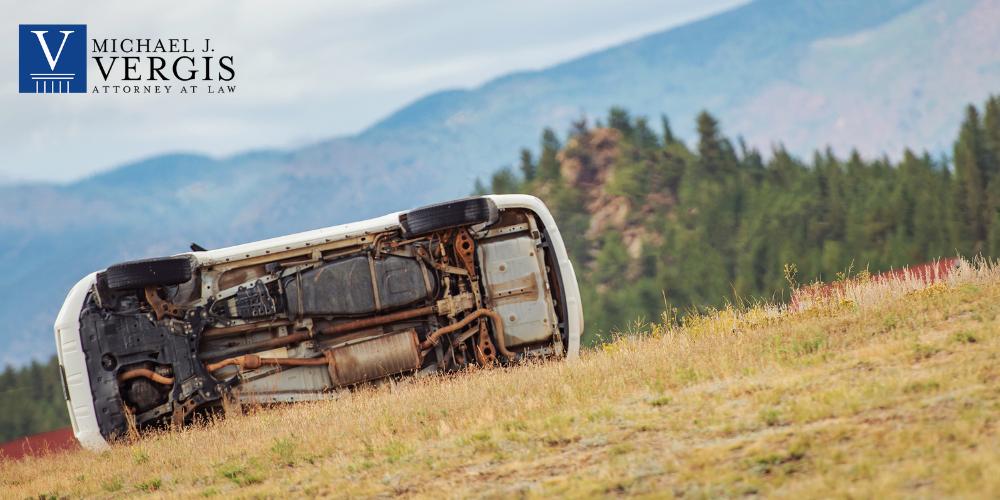
What Causes a Rollover Car Accident?
Like all car accidents, rollover accidents can be caused by a variety of different factors, including driver error, manufacturer error, road conditions, and more. Below are some of the most common causes of rollover accidents in passenger cars.
Speeding
One of the primary factors contributing to rollover accidents is speeding. When a vehicle travels at an excessive speed, it becomes harder to control, especially during sharp turns or sudden maneuvers, increasing the risk of the vehicle tipping over.
Additionally, when a speeding car has a head-on collision with another vehicle or object, the impact forces involved are often more significant, which can further elevate the chances of a rollover crash. Obeying the speed limit and driving at a safe and appropriate speed for the road’s condition is crucial in preventing rollover crashes and protecting vehicle occupants.
Collision With Vehicle or Object
Many fatal rollover accidents occur when a vehicle collides with another vehicle or a stationary object, such as a guardrail, tree, or utility pole. The force of the impact, combined with the angle and location of the collision, can cause a car to flip over.
In some cases, a side-impact collision can result in a rollover, especially if one vehicle strikes the other near the side door or at an angle that destabilizes the vehicle’s balance. Avoiding distracted driving, maintaining a safe following distance, and being aware of your surroundings can help reduce the risk of colliding with other vehicles or objects and, subsequently, the chances of a rollover.
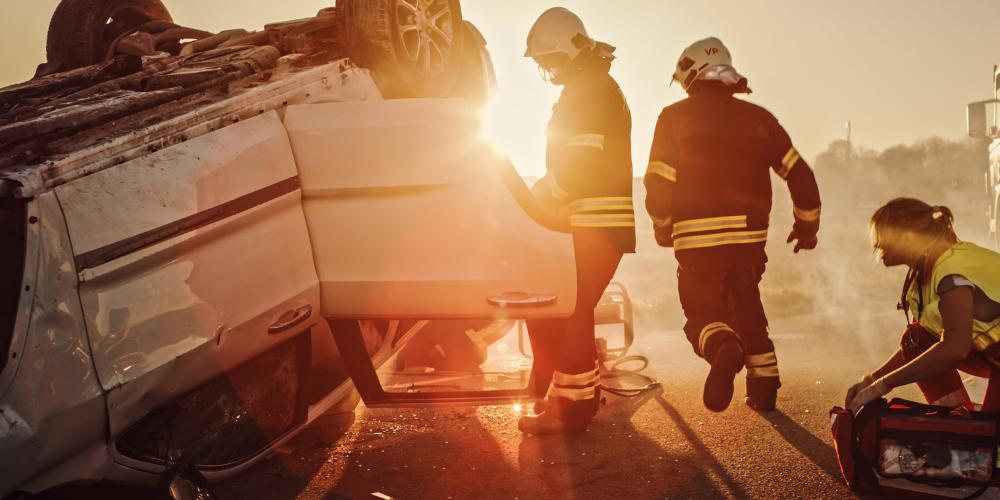
Driver Error
Human error is a significant factor in rollover car accidents. Driver mistakes such as overcorrecting, abrupt steering, or panicking during emergency situations can lead to a loss of control and result in a rollover. In order to minimize the risk of rollovers caused by driver error, it’s essential to stay focused while driving, avoid distractions, and follow safe driving practices.
Vehicle Type
Vehicle type can also play a significant role in the occurrence of rollover car accidents. SUVs, trucks, and vans have a higher center of gravity compared to other passenger cars, making them more prone to rollovers, especially during sudden maneuvers or sharp turns.
Older vehicles may not have electronic stability control, which can help prevent the driver from losing control of the vehicle in an emergency driving situation. It’s essential for drivers of such vehicles to be aware of their vehicle’s characteristics and drive cautiously, especially in situations where rollover risks are elevated.
Road Conditions
Road conditions can greatly contribute to rollover car accidents. Uneven or poorly maintained roads, potholes, and debris can cause a driver to lose control of their vehicle, leading to a rollover.
Additionally, road design, including sharp curves and steep inclines, can also increase vehicle rollover risk, especially if drivers do not adjust their speed and behavior accordingly. Ensuring that roads are properly maintained, adhering to recommended speed limits, and using safe driving practices in challenging road conditions can help mitigate the risk of rollover accidents caused by road conditions.
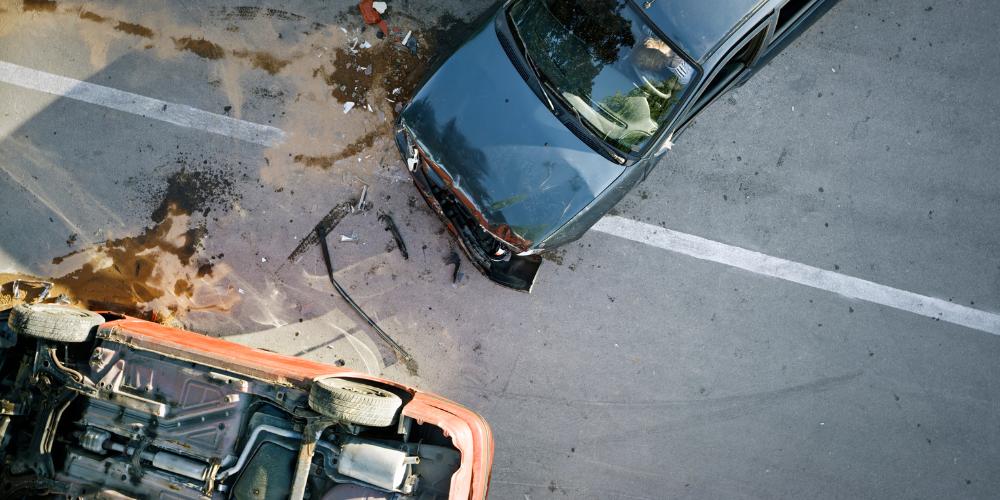
Weather Conditions
A number of deadly rollover crashes happen as a result of extreme weather conditions. Rain, snow, ice, and fog can create slippery road surfaces, reducing tire traction and making it easier for a vehicle to skid or slide during sudden maneuvers. Wet or icy roads can also increase the likelihood of hydroplaning, where the tires lose contact with the road surface, potentially leading to a rollover crash. Strong winds, especially in combination with high-profile vehicles, can also destabilize a vehicle and increase the risk of single-vehicle rollovers.
To prevent weather-related rollovers, drivers should exercise caution, reduce their speed, maintain a safe following distance, and ensure their vehicle is properly equipped for such conditions, including appropriate tires and windshield wipers.
Driving Under the Influence
Driving under the influence of alcohol, drugs, or other substances is a major contributing factor to rollover car accidents. Alcohol and drugs can impair a driver’s ability to assess road conditions and react appropriately to unexpected situations, which can greatly increase the risk of rollover car crashes. Avoiding driving under the influence and using designated drivers or alternative transportation options is crucial in preventing these types of accidents.
Tire Failure or Poor Maintenance
Tire failure or inadequate maintenance can be a hidden risk factor in car rollover accidents. Worn-out or underinflated tires can reduce a vehicle’s stability and grip on the road, making it more susceptible to skidding and tipping over during maneuvers.
Blowouts or sudden tire failures can also lead to a loss of control, potentially resulting in a rollover. Regularly checking tire pressure, tread depth, and overall condition, as well as replacing tires when needed, is essential in preventing rollover accidents caused by tire-related issues.
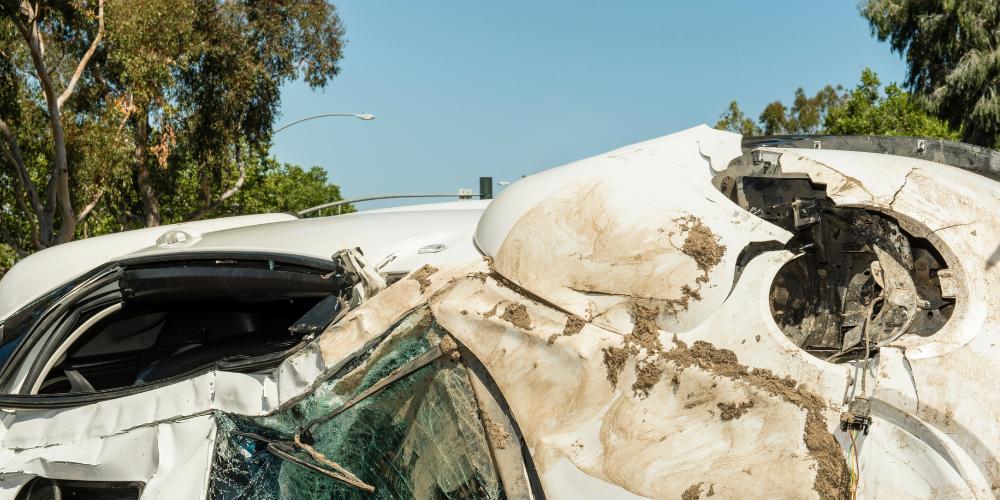
Load or Cargo Shift
Load or cargo shifting inside a vehicle can significantly impact its stability and increase the risk of rollover accidents. When cargo is improperly secured or loaded unevenly, it can shift suddenly during driving, causing a sudden weight distribution change, which can alter the vehicle’s center of gravity. This can lead to a rollover, particularly in high-profile vehicles like pickup trucks and vans. Ensuring that cargo is securely fastened and evenly distributed within the vehicle is crucial to reducing the risk of rollovers caused by load or cargo shift.
Tripping
One of the most common causes of rollover accidents is tripping, which refers to situations in which a vehicle’s tires strike an object, curb, or roadway irregularity, causing it to “trip” and potentially rollover. Common tripping objects include guardrails, medians, or soft road shoulders. According to the National Highway Traffic Safety Administration (NHTSA), tripping is the cause of over 90% of all rollover accidents.
If the vehicle’s momentum is not properly managed, even a minor collision with a tripping hazard can lead to a rollover. Roadway design that minimizes tripping hazards and driver awareness of potential tripping hazards are essential in preventing tripped rollover accidents.
Common Injuries Sustained From Rollover Car Accidents
Rollover accidents can easily lead to severe or even catastrophic injuries, especially in situations where vehicle occupants aren’t wearing seatbelts. Some of the most common rollover injuries include:
- Contusions and lacerations
- Broken bones
- Crush injuries
- Amputations
- Traumatic brain injuries
- Spinal cord injuries
- Neck injuries
- Emotional distress
- Wrongful death
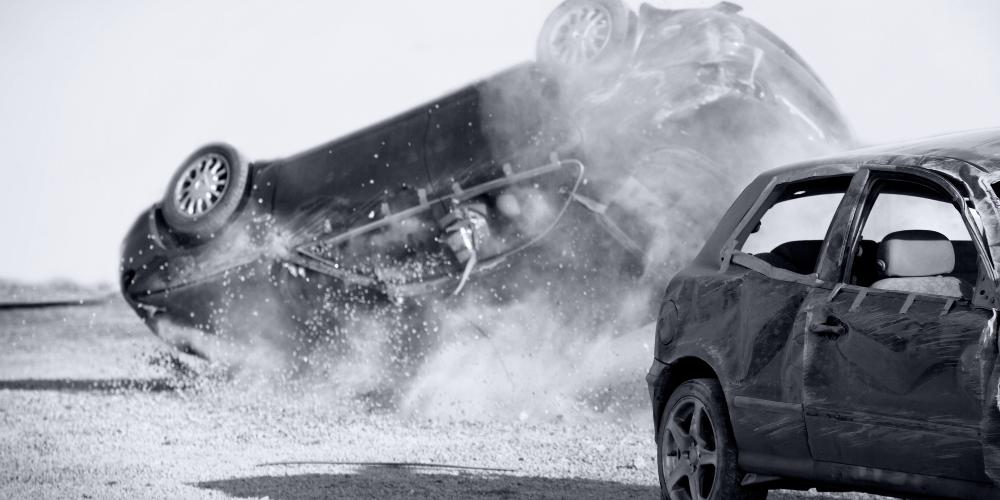
What To Do After a Rollover Accident
Experiencing a rollover car accident can be a traumatic and disorienting event, but knowing what steps to take immediately afterward is crucial for your safety and well-being. Here are the key actions to consider after a car rollover accident:
- Check yourself and any passengers for injuries. If anyone is injured, call 911 or emergency services immediately to request medical assistance.
- Safely exit the vehicle through the doors or windows and move yourself or passengers to a safe location.
- Call the police to report the accident, even in the event of a single-vehicle crash.
- Exchange contact and insurance information with any other parties involved in the accident. This includes names, phone numbers, addresses, driver’s license numbers, and insurance details.
- Safely gather evidence of the accident, if possible. Take photos or videos of the accident scene, the positions of the vehicle or vehicles, and any visible damage.
- Seek medical attention, even if you don’t feel immediate pain or discomfort. Some injuries may not manifest symptoms right away, and early detection can prevent future complications.
- Inform your insurance company about the accident as soon as possible. Provide them with the necessary details and documentation, including the police report and photos.
- Document your injuries and keep track of your medical records.
- Contact a legal professional regarding your accident. Even in single-vehicle crashes, other parties may have been totally or partially at fault for the accident.
How Shreveport-Bossier Personal Injury Attorney Michael J. Vergis Can Help with Rollover Accidents
Personal injury lawyers are extremely valuable in car accident cases, especially rollover accidents, which often cause serious injuries and property damage. An experienced car accident lawyer can help determine and prove fault in court through the use of eye-witness testimony, expert witness testimony, or video and photo evidence from the crash. They can also determine the amount of the victim’s losses, adding up things like prior medical bills and lost wages and calculating things like future losses and non-economic damages like emotional distress.
Rollover accidents can cause serious injuries, many of which can be catastrophic and debilitating. A personal injury attorney can help victims recover compensation for losses like permanent disability and loss of earning potential, which are often the result of things like traumatic brain injuries and spinal cord injuries. In the event of fatal rollover crashes, they can ensure the victim’s family receives fair and just compensation for the loss of their loved one.
When facing the aftermath of a personal injury accident in Shreveport-Bossier, having the right attorney can be crucial. Seasoned Shreveport-Bossier personal injury lawyer Michael J. Vergis brings a wealth of legal knowledge and skill to every case he takes on. If you or a loved one has suffered from serious injuries as a result of a rollover accident, Attorney Vergis is here to help ensure you receive the compensation you deserve.
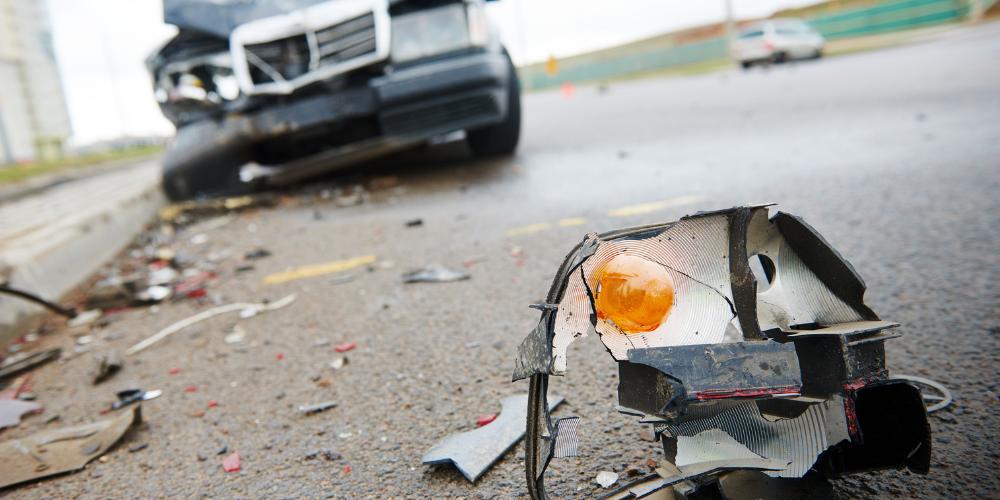
Rollover Accident Injury Claim? Call The Law Offices of Michael J. Vergis Today
When rollover accidents occur, it’s crucial to have an experienced personal injury lawyer who can fight for your best interests in court. If you or a loved one’s vehicle rolled over in an accident, call The Law Offices of Michael J. Vergis. When it comes to seeking fair compensation and justice, you can trust Attorney Vergis and his dedication to pursuing justice on behalf of his clients.
Our commitment to your well-being goes beyond legal expertise. We understand the physical, emotional, and financial toll that rollover accidents can take on victims and their families. Michael J. Vergis takes a compassionate, client-centered approach, ensuring clients receive the personalized attention and care they deserve throughout the legal process.
Your recovery is our priority–call us at (318) 698-3724 or contact us online to schedule a free consultation with an experienced Shreveport-Bossier car accident lawyer regarding your case.

